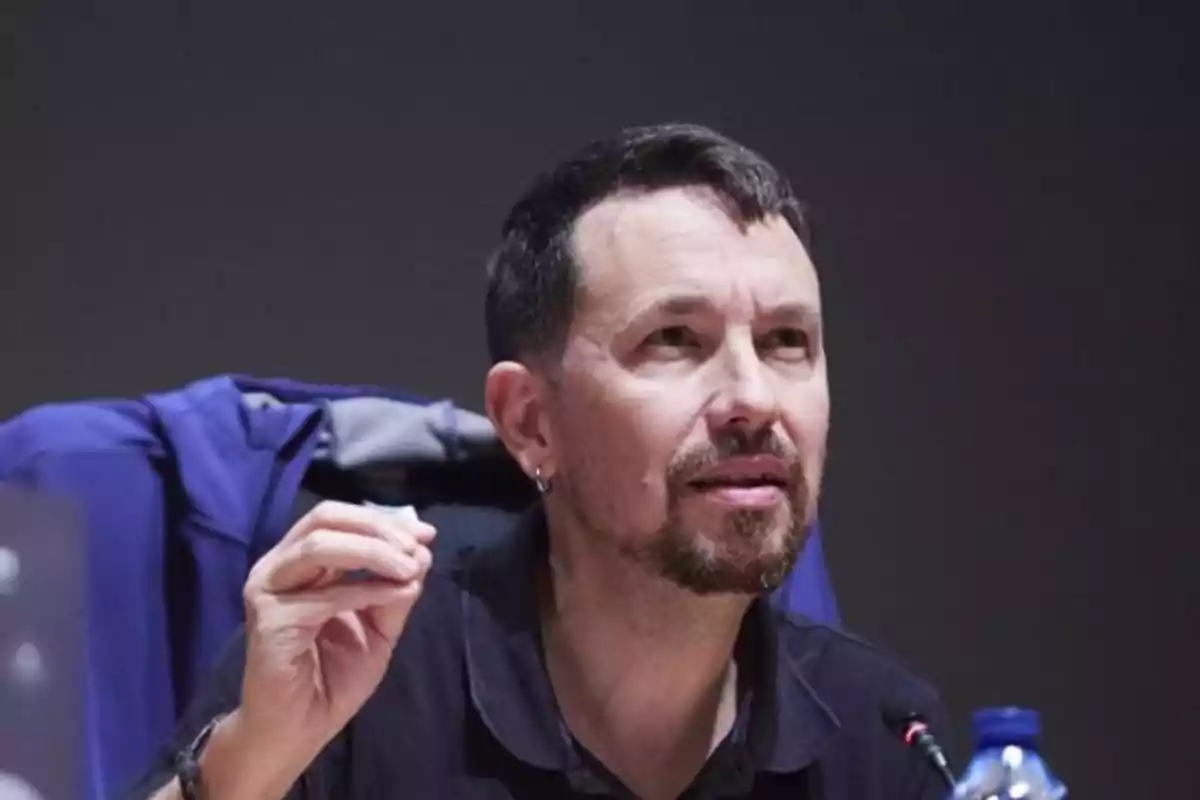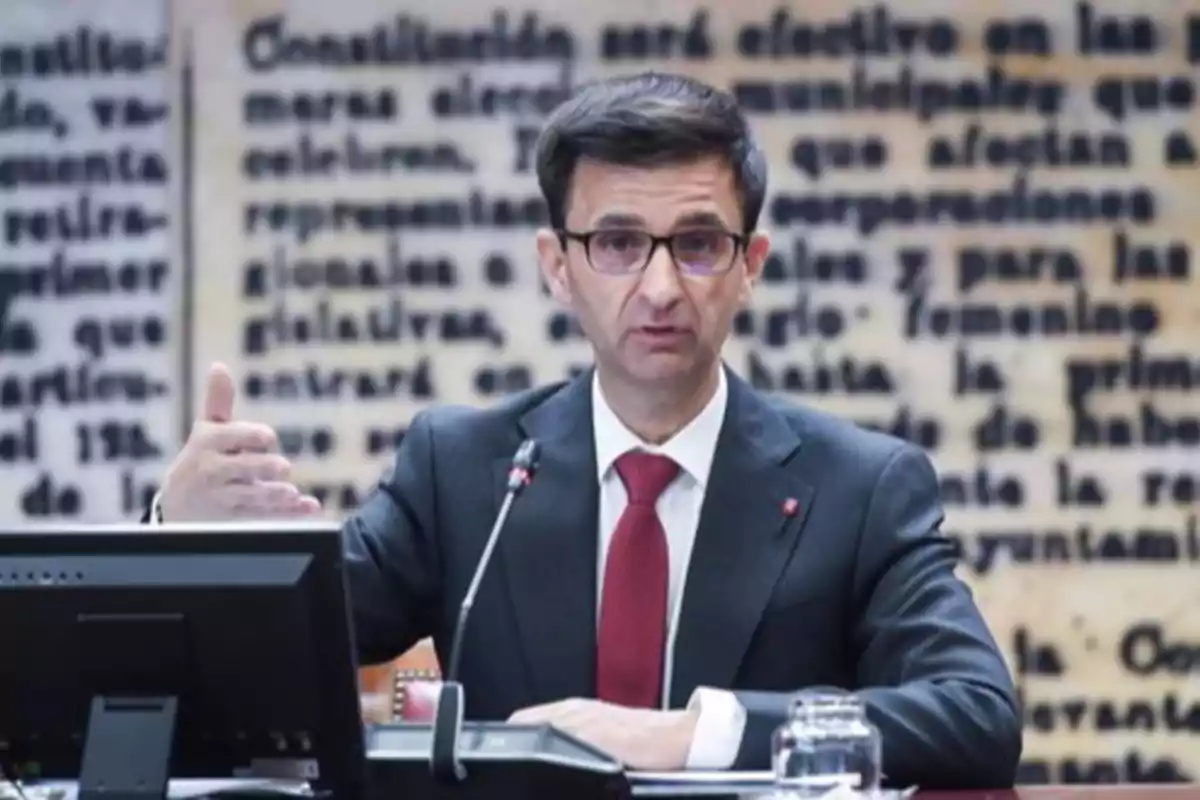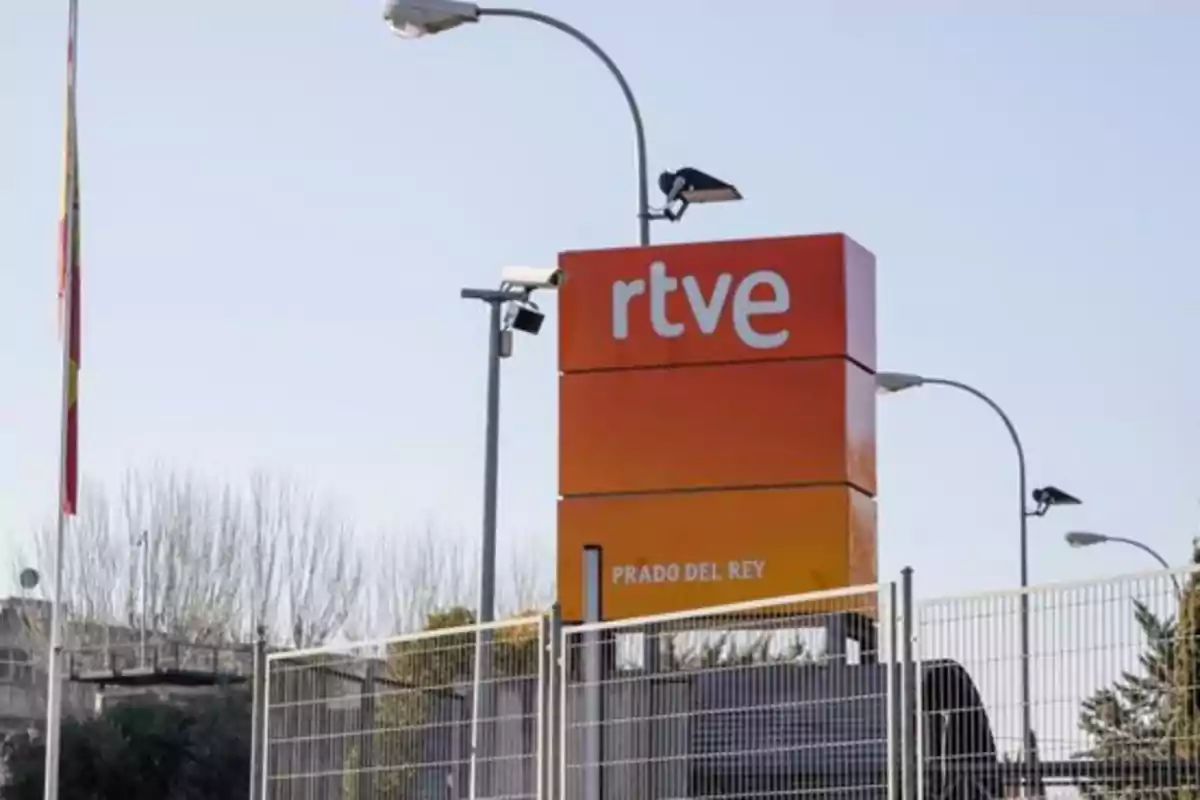
Iglesias faces TVE's news council to defend the new Sálvame
The panelist from La 1 excuses the biggest failure of the television season because the heart 'is unavoidable in our societies'
Pablo Iglesias is satisfied with his presence on RTVE, after becoming a regular panelist. The former Vice President of the Government has shown his support for formats like "La Revuelta," "La hora de La 1," the renewed version of "Mañaneros" with Javier Ruiz. He also seems to like even the controversial and failed gossip show "La familia de la tele."
"I think the world of gossip is something that, although I don't consume it, is unavoidable in our societies. And public television shouldn't ignore it," he stated in an interview with La Voz del Sur.
He also launched harsh criticisms against the RTVE News Council. "It's not my place to organize the schedule. But come on, let the RTVE News Council come, who are more right-wing than Don Pelayo's horse and who have bet on repugnant formats on TVE, to criticize that. When they are basically PP soldiers on public television. Well, go to hell a little bit," he added.
The role of the News Council
Since last April 4, the News Council has been chaired by Óscar Nieto. The president is accompanied by Julián Merino (vice president), Virginia Solà (vice president), and Ignacio Sánchez (secretary).

This body expressed its discomfort with the television coverage in "La familia de la tele" of the election of the new Pope. And they demand the presidency and the RTVE Board of Directors to avoid "undermining the credibility of our news services. Nor harming our brand image."
In reference to the journalist Marta Riesco, they declared. "They sent one of their collaborators to Rome, to a clearly informative event, using the TVE microphone. Neither the tone nor the form of the program is what is expected from public television. Our professionals and our viewers deserve respect."
Controversy over the documentary '7291'
The broadcast of the documentary '7291' on La 2, focused on the protocols of shame of the Community of Madrid during the pandemic, which caused more than 7,000 deaths, was well received within RTVE. But the special programming revolving around this project has caused some doubts.
On April 7, the Council announced an investigation into the choice of the documentary. "We want to know why an in-house production wasn't commissioned to commemorate the fifth anniversary of the pandemic. Why was that particular documentary chosen? Why focus exclusively on the Community of Madrid and not give space to other regions?" they wondered.
Yesterday they made their diagnosis. "We don't question that the death figures in this region require special attention. But we miss expert voices outside of politics, such as professionals from the social and health field. Other spaces like 'Informe Semanal' or the 'Special Newscasts' addressed the pandemic more broadly."
The Council points directly to José Pablo López. "We mention the presidency because, according to our information, it was the president of RTVE, in coordination with the TVE management, who made the decision to acquire the documentary. Without consulting the non-daily news programs area."
They add: "We don't share the decision to make the documentary '7291' the centerpiece of the special program 'The pandemic that stopped the world.' TVE should have bet on an internal production. Failing that, they could have resorted to reports from 'Informe Semanal'."
Accusations from Diario Red
The media directed by Iglesias, Diario Red, accused the News Council of being a "pressure body in Torrespaña," stating that "during the previous and current mandates, the Council has carried out constant campaigns against the RTVE management and the decisions of President José Pablo López."
According to Diario Red, the Council's objectives are two. One is that they say belonging to the Council facilitates access to international correspondents, which would explain why it is mostly composed of journalists, 9 of the 13 members. There is no representation of other professional categories such as producers or technicians.
In addition, the Council members (like cameraman Óscar Nieto or director Julián Merino) oppose external producers participating in RTVE. They would do so to ensure participation in national and international coverages.
Diario Red also claims that these professionals have "a conservative profile, not aligned with progressive attitudes." But internal voices from RTVE consulted by the media reject this ideological view. "They are not the PP's spokespersons," they assure.
This is how Iglesias has strengthened his position in RTVE
Podemos was decisive in unlocking the RTVE leadership in Congress, and now Iglesias is reaping the rewards. He has become a regular panelist on programs like "Mañaneros," "Malas lenguas," "Las Mañanas de RNE," or the defunct "59 segundos."
In addition, several collaborators from Canal Red, the media promoted by Iglesias, have entered RTVE with the support of the current president José Pablo López. This is the case of Manu Levín and Laura Arroyo, regulars on "La hora de La 1," or Raúl Sánchez Cedillo on RNE.

With this landing, the "media anomaly" that, according to Iglesias, prevented Podemos from having a voice in the major media is broken. Especially, since his confrontation with Antonio García Ferreras, burdened after the leak of audios with former commissioner Villarejo.
Iglesias has never hidden his goal of strengthening his presence on television. He himself acknowledges that Podemos's initial success was largely due to his visibility on the sets. In fact, before entering politics, he criticized Izquierda Unida for supporting the PSOE in Andalusia without obtaining spaces on the regional television Canal Sur.
The founder of Podemos says that the public "doesn't belong to political parties, people belong to the media. A person is from La Razón, from El País, from COPE, or from Cadena SER. Television panel discussions are much more important than debates in Parliament."
More posts: